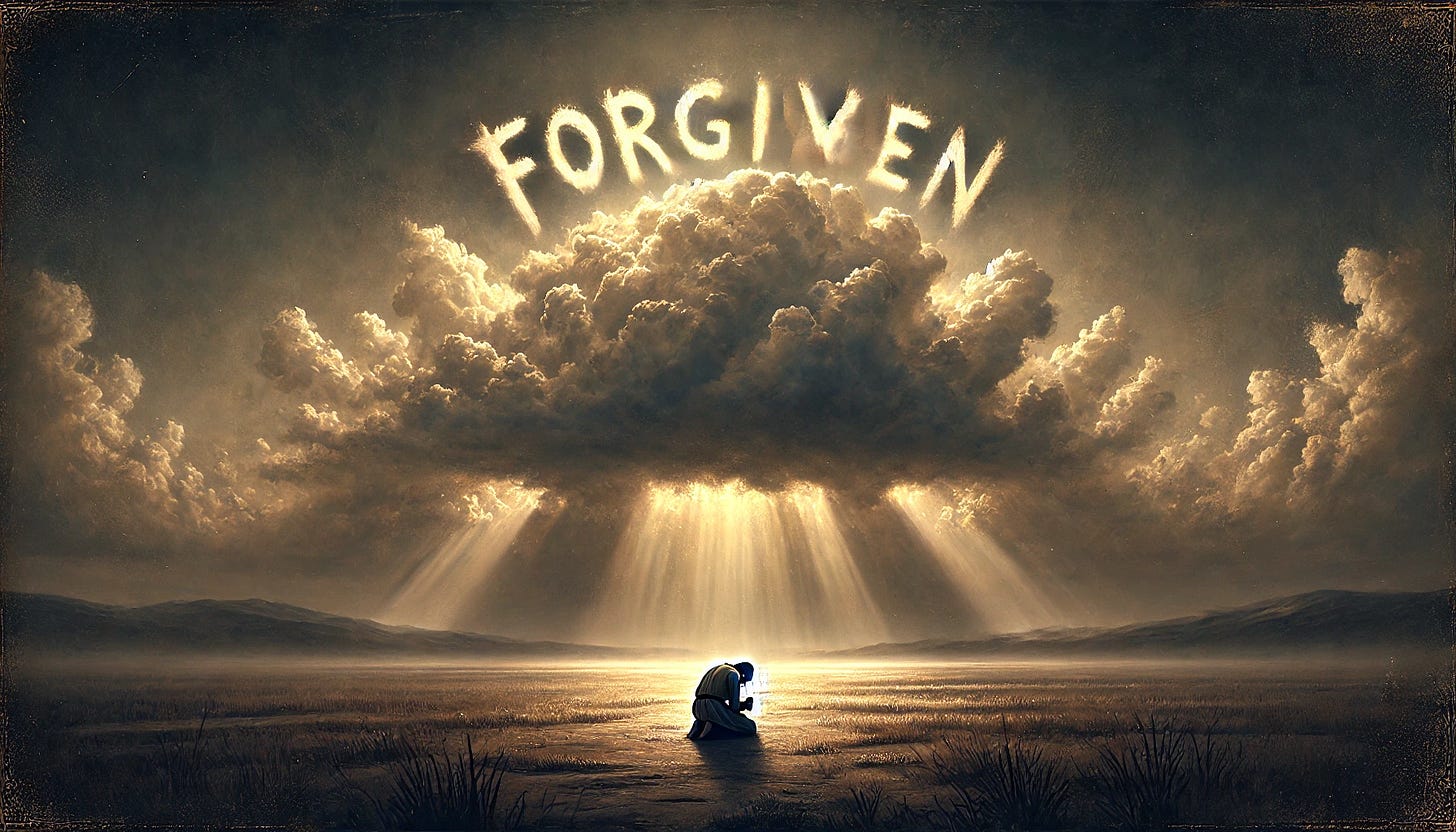For Good Friday, a Story of Forgiveness and Absolution
Every year, people throughout the world celebrate Easter, but Easter is incomplete without Good Friday – a day considered sacred by millions of Americans. On Good Friday, Christians remember the crucifixion, death, and burial of Jesus.
In his Pulitzer Prize-winning book, “The Denial of Death”, scholar Ernest Becker explained that humanity is plagued by the ever-present fear of death. Man copes by suppressing the terror of his mortality because “…a full apprehension of (his) condition would drive him insane.” Oscar winner Woody Allen spoke for many when he quipped, “I’m not afraid of death, I just don’t want to be there when it happens.”
Allen was once asked by a reporter, “Do you believe in God?” He responded, “No, I’m an atheist but, in my better moments, I’m an agnostic.” Then the reporter asked, “If there were a God and he could say one thing to you, what would you like to hear him say?” In a flash of authentic transparency, Allen said, “You are forgiven.”
Becker discovered that, “Traditional religion turns the consciousness of sin into a condition of salvation…” Allen suffers from a consciousness of sin without believing in the concept of sin, “…he feels a sinner without the religious belief in sin.” Allen longs to be set free from his fear of death and feelings of guilt but, as Becker understood, the absolution Allen craves “… has to come from the absolute beyond” – it has to come from God.
The one-time slave trader John Newton shared Allen’s angst. Newton is remembered for his song, Amazing Grace: “Amazing grace, how sweet the sound, that saved a wretch like me; I once was lost, but now am found, was blind but now I see.”
The gift of spiritual insight Newton received was a sign that God’s unmerited favor rested upon him. Newton had spent his life running from God so, at first, the consciousness of his sinfulness before a Holy God terrified him. As Newton said, “Twas grace that taught my heart to fear and grace my fears relieved; how precious did that grace appear, the hour I first believed.” God’s tender grace led Newton to Jesus, who did not condemn him but, in Newton’s words, “saved a wretch like me.”
Jesus said, “You will know the truth, and the truth will set you free.” Feminist icon Gloria Steinem agrees, with a twist: “The truth will set you free, but first, it will piss you off.”
Modern Secular Man rejects the concept of sin but suffers from a consciousness of it just as much as his religious ancestor – he feels he is a sinner while having no religious belief in sin. In vain, he seeks relief horizontally when lasting freedom from guilt and pardon for sin can only be found vertically and comes from God. This truth “will piss (him) off.”
Christianity hinges on the message of forgiveness, what Scripture calls “the message of the cross.” On the cross, Jesus’ final words were, “It is finished.” In the Bible, these words originate from the Greek word tetelestai, which connotes a final payment. In those days, when a debt was paid the receipt would be marked tetelestai, to signify the obligation had been completely satisfied.
Woody Allen longs to hear God say, “You are forgiven.” The message of the cross is that no matter who you are or what you have done, anyone who contritely confesses their sins, turns, and comes to the cross in faith hears the message: “tetelestai – It is finished. The great debt of your sin is paid in full. You are forgiven!”
Moved with compassion, Jesus paid a debt he didn’t owe for those who owed a debt they couldn’t pay. That’s why it’s called Good Friday – but without Easter Sunday, it would’ve been just another Friday.
On Easter Sunday, Christians celebrate the vindication of Christ. Jesus conquered the grave! He is risen! His final victory over sin and death is credited to his followers by faith. His victory is their victory. His resurrection portends their resurrection, and his life is the assurance of their eternal life.
Now, as Scripture states, “Death has been swallowed up in victory. Where, O death, is your victory? Where, O death, is your sting?”
This truth will set you free.




